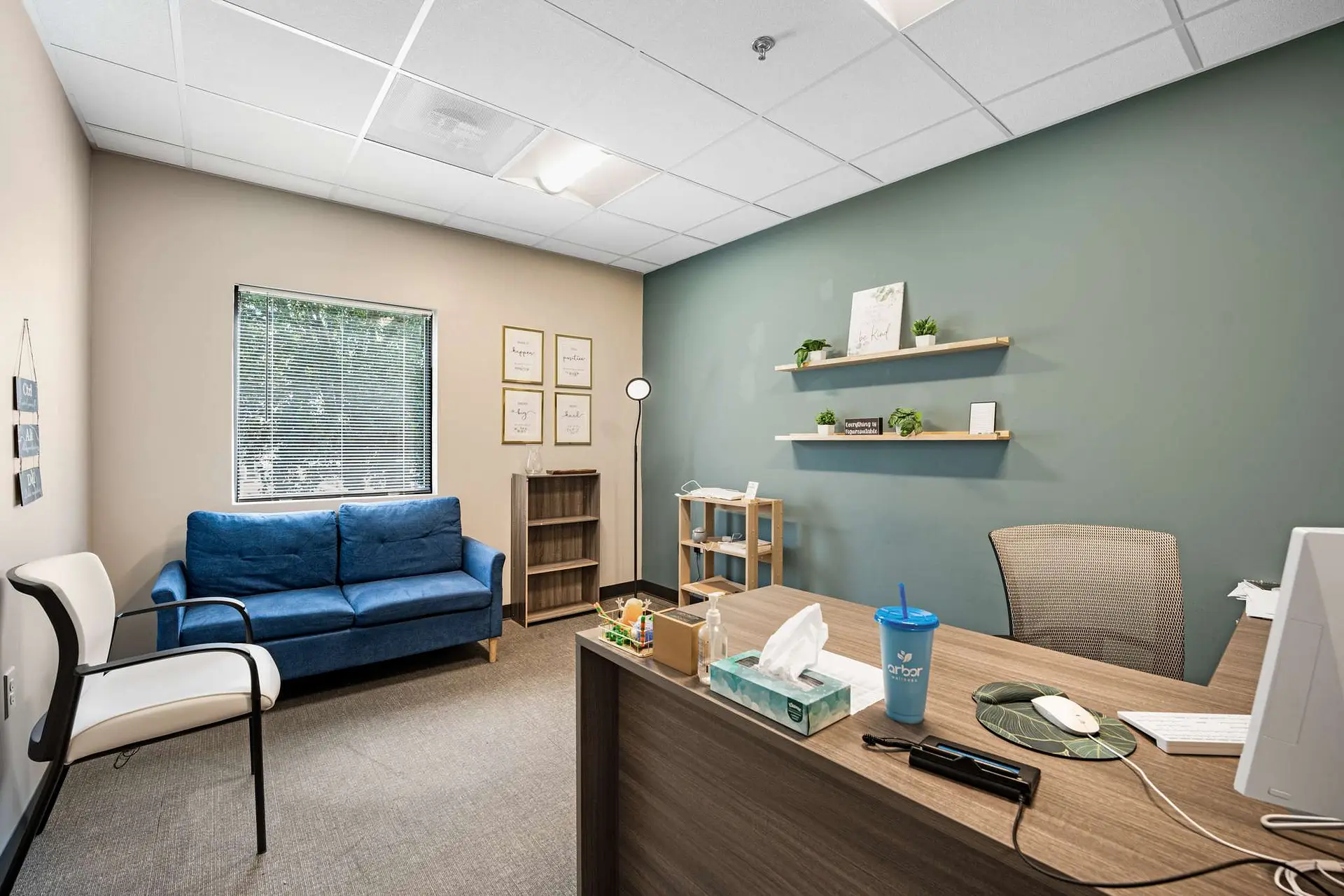Detox in Palms
Individual Therapy for Addiction in South Houston
If you want to overcome a drug or alcohol addiction, there needs to be a comprehensive treatment plan. That plan may include a wide range of therapies and treatment methods, each of which can be beneficial. Individual therapy for addiction is one of the most effective approaches to recovery.
Contact us today to get started.

Individual Addiction Therapy Offers the Opportunity for Complete Openness
Whether a client participates in individual or group therapy, they should be honest and open about their history and their feelings. However, it’s much harder to talk about some subjects in a group setting. For many clients, being vulnerable is best done in a one-on-one environment with a trained therapist.
Individual therapy allows for total honesty and openness. There is a high level of confidentiality between counselor and client, which makes participating easier. However, some topics are difficult to discuss in any format. Addressing abuse, family crises or relationship problems, however, are critical to lasting recovery and the resolution of underlying issues.
Get Ready
For A New Chapter
your information.
Explore Personal Topics for Each Client
Group therapy sessions may cover a wide range of topics, and those can vary from one session to the next. Since all participants have a unique history, not every therapy session or issue will be relevant. Some discussions, for example, just won’t apply to the life of a particular patient.
Listening to the concerns of others, even if they aren’t directly relevant, is part of life. Also, it’s best to offer clients the chance to focus on the subjects most important to them at the time. In an individual counseling session, a client might want to discuss the state of their marriage or an ongoing custody battle. These are highly specific subjects, but must be addressed as they relate to rehab and recovery, for a successful recovery.
Customized Schedule for Client Convenience
Individual therapy for addiction is beneficial at multiple stages in the addiction treatment process. While scheduling conflicts aren’t typical for those in a residential addiction treatment program, it can be an issue for those in outpatient or aftercare programs.
Often, group therapy is held at set times to accommodate the highest number of participants. Individuals might struggle to make those times while juggling family routine, education or careers. With individual therapy, there is no worry about scheduling conflicts. Clients can just arrange for therapy sessions that suit their schedules and their lifestyles, ensuring that there is never a need to miss a vital therapy session.
Learn Individualized Coping Skills for Substance Abuse Disorders
Recovery doesn’t stop just because rehab ends. In fact, many clients find the weeks and months following rehab to be especially challenging. One of the best ways to fight back against the risk of relapse is by having an arsenal of practical coping skills at the ready.
Coping skills are the most effective when they are specific to each client. One person might find that avoiding certain situations is the easiest way to remain sober. Another patient might prefer to discuss their addiction, holding themselves accountable publicly.
Others add specific actions to their daily routine to minimize stress. During individual therapy for addiction, clients may practice a type of exercise that they enjoy. They might learn about the benefits of yoga, or they can work with a therapist to create a support system that they can lean on in tough times. With all of these plans ready, clients will have a much better, stronger chance at lifelong freedom from addiction.
Supplementing Individual Therapy for Addiction at Kemah Palms Recovery®
While individual therapy at a professional drug addiction treatment center important, it isn’t everything. That’s why Kemah Palms Recovery® offers addiction treatment options in Texas that comprehensively tackle addiction. Addiction therapy services and treatment methods come in many varieties, just some of which can include the following:
- Houston medical detox program
- Group therapy
- Family addiction treatment program
- Cognitive behavioral therapy
- Chronic pain recovery program
- Narrative medicine therapy
- Psychodrama therapy
- Vicodin addiction treatment center
Individual therapy can be one of the most effective treatment modalities in the addiction recovery process. At Kemah Palms in Texas, it is just one of many strategies that combine to give clients the skills they need for sobriety. Take back control over your life today and call us at 713-568-1210.



